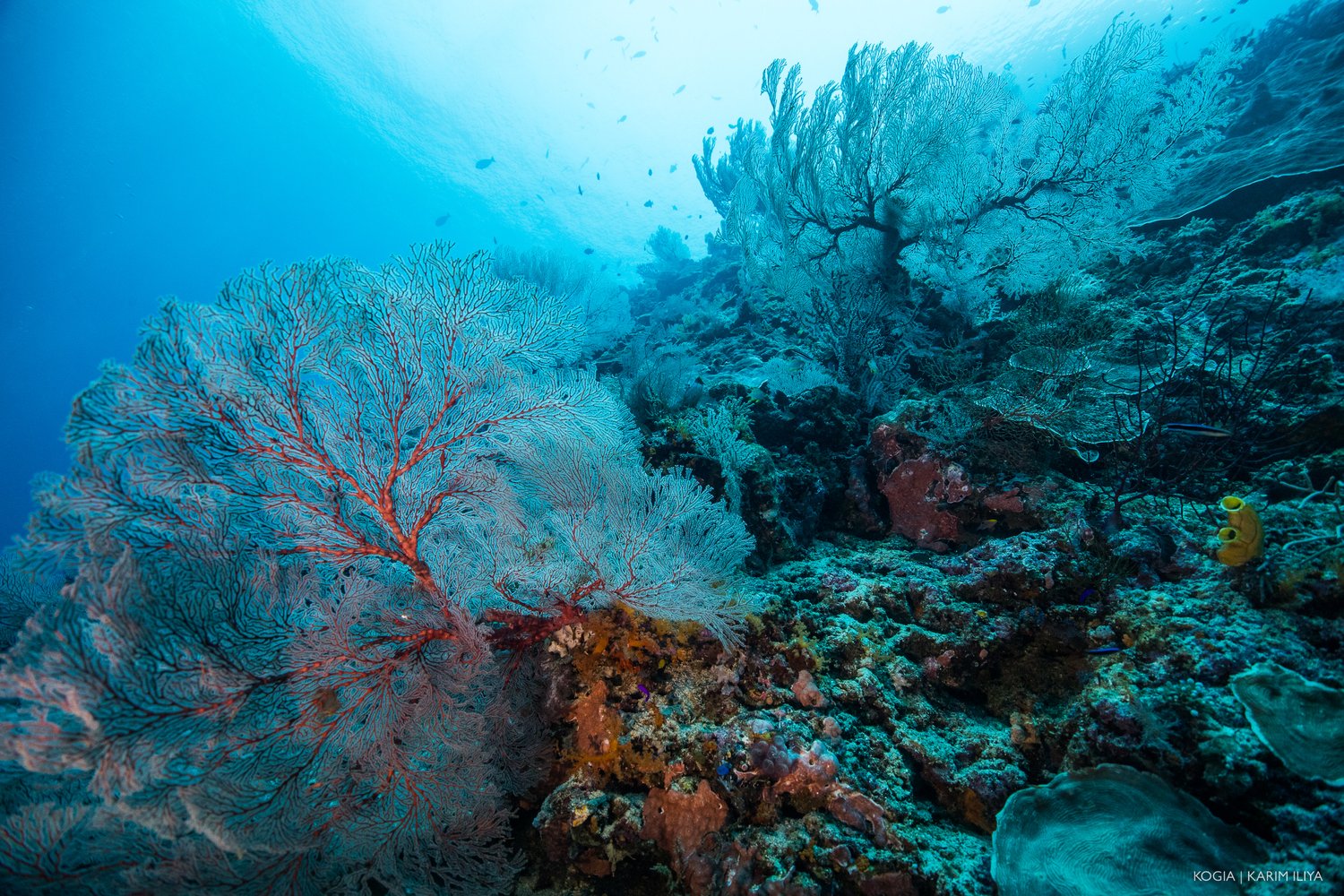For Immediate Release
Monday, July 1, 2019
Experts find that protecting diverse reef networks can enable rapid evolution and coral reef longevity
Oakland— A new study released today in Nature Climate Change gives hope for coral reefs. The pioneering study launched by the Coral Reef Alliance is one of the first to demonstrate that management that takes evolution and adaptation into account can help rescue coral reefs from the effects of climate change. Importantly, the results show that by making smart decisions to protect reefs today, conservation managers can generate the conditions that can help corals adapt to rising temperatures.
“It is well documented that climate change is causing corals to die off at an unprecedented rate, but our study provides tools that offer promise for their survival,” stated Dr. Madhavi Colton, co-author and Program Director at the Coral Reef Alliance. “Our results show that when evolution is enabled, conservation efforts can help corals adapt to rising temperatures.”
Contrary to approaches that are popular today, such as focusing protection on reefs in cooler water, the study shows that protecting diverse reef habitat types across a spectrum of ocean conditions is key to helping corals adapt to climate change. “We found that a diversity of reef types provides the variety that evolution depends on,” explained co-author Malin Pinsky, Associate-Professor at Rutgers University. “Hot sites are important sources of heat-tolerant corals, while cold sites and those in between can become important future habitats. Together, a diversity of reef types act as stepping stones that give corals the best chance for adapting and moving as climate changes.”
Key to successful evolution is management that improves local conditions for reefs by effectively reducing local stressors, such as overfishing and water pollution. However, the authors caution that not all management strategies are created equal. “We used mathematical models to test the effects of management choices on coral reef outlooks,” stated Dr. Tim Walsworth, lead author and postdoctoral researcher at the University of Washington. “We found that corals in well-managed areas act a source of baby corals in the future, essentially rescuing reefs after the climate stabilizes. Without both evolution and management, the corals in our model were unable to survive rising temperatures.”
Coral reefs are one of the most diverse ecosystems on the planet and support the livelihoods of over 500 million people. Globally, they are estimated to be worth US$375 billion per year. The study shows that managing reefs to facilitate evolution today and in the future can enhance their prospects for long-term survival. This means creating managed area networks that contain a diversity of coral types and habitats and that effectively reduce local stressors. “This study shows that we know enough of the science to act—and with the effects of climate change only increasing, we have little time to waste,” says Dr. Colton.
The study titled, “Management for network diversity speeds evolutionary adaptation to climate change” is the result of a collaborative research program launched by Dr. Madhavi Colton and Dr. Michael Webster of the Coral Reef Alliance. Our partners include Dr. Timothy Walsworth, Professor Daniel Schindler and Professor Tim Essington at the University of Washington, and Associate Professor Malin Pinsky at Rutgers University. Advisors and co-authors include Professor Steve Palumbi, Stanford University, and Professor Pete Mumby, University of Queensland. The research was funded by the Gordon and Betty Moore Foundation.
About the Coral Reef Alliance
The Coral Reef Alliance (CORAL) is a non-profit, environmental NGO focused on saving the world’s coral reefs. This year marks CORAL’s 25th anniversary of combining science-based solutions with effective community-driven conservation. CORAL is actively expanding the scientific understanding of how corals adapt to climate change and using that information to develop conservation strategies to give corals around the world the best chance of surviving climate change. To discover more about CORAL’s work to save the world’s reefs, visit us at www.coral.org.
About the University of Washington
At the University of Washington, we believe that what you care about can change the world. We’re more than one of the world’s leading public research universities: We’re a community of students and faculty united by a drive to serve the public good. From educating future leaders and making innovation work for all of us, to research breakthroughs and creative works that save and change lives, we’re committed to helping people and communities achieve their full potential. With multiple campuses, a world-class academic medical center, PAC-12 athletics and extensive continuing education programs, the opportunities here are limitless. Learn how you can Be Boundless for Washington and the world at uw.edu.
About Rutgers University
Rutgers, The State University of New Jersey, is a leading national research university and the state of New Jersey’s preeminent, comprehensive public institution of higher education. Established in 1766, the university is the eighth oldest higher education institution in the United States. More than 69,000 students and 22,500 full- and part-time faculty and staff learn, work, and serve the public at Rutgers locations across New Jersey and around the world.
###
